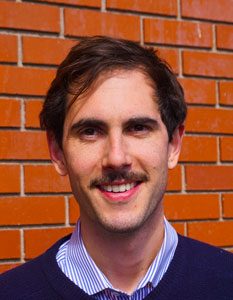Widening the Circle of “Us” with
Dr. Rick Hanson
Dr. Rick Hanson
As Dr. Rick Hanson points out, for the last 2 million years our ancestors have succeeded in preserving “us” by repelling “them.” But in modern times, with 7.5 billion people sharing the earth, this ancient tendency to fear and attack can be very harmful. Luckily, there is a way to take hold of this tendency, and put it to good use. This is what Dr. Hanson Calls “widening the circle of us.”
Reflection: Why is it so hard to be a human in a world of other humans?
By David Prichard
It happens in a moment: our simple wish for harmony, stability, and control of our humble life pits us against some perceived obstacle. And so often this obstacle is another human being. And so often it is a whole group, clique, party, demographic, nationality—et voilà, the ancient battle of us vs. them pulses in lock-step through our rushing cardiovascular system.
Yet we know this reaction is not exclusive to warfare and national politics. Personally, I experience it at home every day.
My wife and I, and our 15th month old son, are living with my parents—catching our breath after a cross-country move, and feeling out where we want to settle in the area. Of course I love, and really like, my parents; and so does Bridgette. Graciousness and good-will abounds. And best of all blessings, my father and his namesake grandson have become devotedly, joyfully, best friends forever, giddy with the garden hose, exuberant in the mud, in the tool shed, the pantry—there is no off-limits to their jolly play.
Yet the happy chaoses of inter-generational living have a way of interrupting our day, it seems, influencing our parenting, and encroaching on the little leisure time our marriage has. I feel it happening in an instant: the stubborn head of unwillingness rises in my chest like a cobra in defense posture, and hisses. And that hiss feels like my heart drawing a sharp in-breath, and gritting its teeth. What is this unwillingness that raises its head? Unwillingness to be part of a society larger than myself, greater than me, greater than I?
Why is it so hard to be a human in a world of other humans? While unpacking one’s family karma may be a project unto itself, this continual, sudden splitting off from the other, this us vs. theming, is happening all the time on all levels of society. And it has a long history.
As Dr Rick Hanson points out, for the last 2 million years our ancestors have succeeded in preserving “us” by repelling “them.” And when tribal, primal preservation is the goal, the us/them method still works. However, as Dr. Hanson says, now that we are “living all together on this planet—seven and a half billion or so members of the one human tribe—the ancient tendency to fear and attack ‘them’ is going to be very harmful, and it has been very harmful already to ‘us.’”
Luckily, this ancient tendency to distinguish us from them is not only an habitual pattern that is enacted without our consent, it is also a tool that we can take hold of and put to good use. This is what Dr. Hanson Calls “widening the circle of us.”
The Widening the Circle of Us practice, offered in the clip above, is a salve to soothe the shrunken circle in which, at times, there is hardly room for ourselves. It’s a practice of inclusivity, wholeness, and healing. It can feel alarming, he cautions, including all of ‘them’ in our practice. Yet often, he says, “widening the circle of us has a kind of peacefulness in it, a whoosh, a landing and settling.”
It’s good to remember that “You can have a widening circle of us while simultaneously reserving your rights, seeking justice, and opposing inside the circle of us, in a meaningful way, those who are harming others” (which you can read more about in Dr. Hanson’s blog post here).
Practicing this week, and thinking of my family, and thinking of politics, the divide, and the world of divisions and harm we live in, I’ve been grateful for the sigh of relief I hear emitted inside me, from that heart, that cobra, that sometimes divisive relative in the good family of me, of us.
What do you think? Do you have a tendency to fear and attack “them”? How does this work (or not) while among loved ones? What about creating healthy boundaries?
 David Prichard is the Head of Partnerships and Community Enrichment for The Awake Network. A new father, reformed spendthrift, and aspiring homesteader, David is also a meditation instructor who has been practicing for close to a decade. Most dear to him is the belief that together we are creating societies of goodness and cultures of care and delight––and that’s exactly what David is accomplishing as The Awake Network’s relationship builder.
David Prichard is the Head of Partnerships and Community Enrichment for The Awake Network. A new father, reformed spendthrift, and aspiring homesteader, David is also a meditation instructor who has been practicing for close to a decade. Most dear to him is the belief that together we are creating societies of goodness and cultures of care and delight––and that’s exactly what David is accomplishing as The Awake Network’s relationship builder.

It’s an interesting article in this period! I’m italian and we have some problems for Coronavirus now! And i can see the “tendency to fear and attack them”… We are afraid and it’s important that “It’s good to remember that <>”.
Thanks